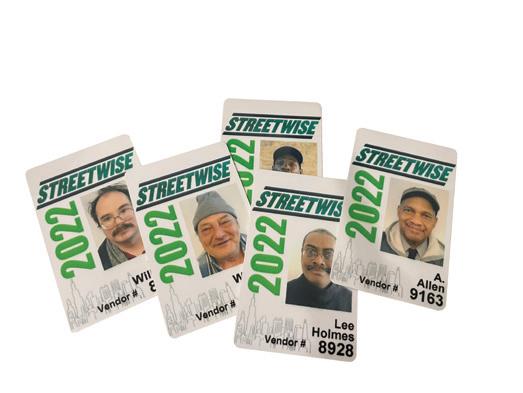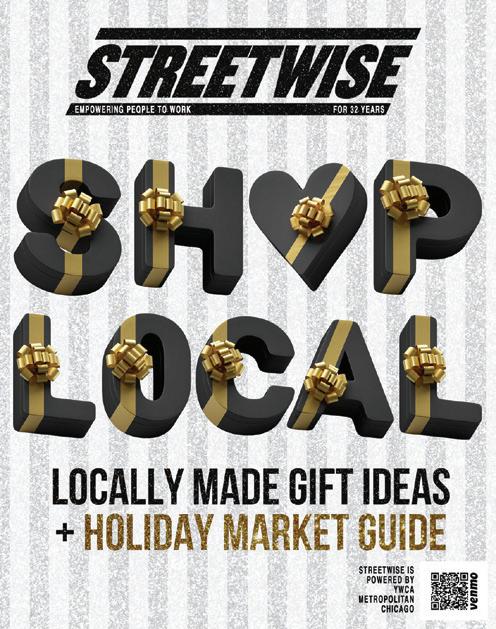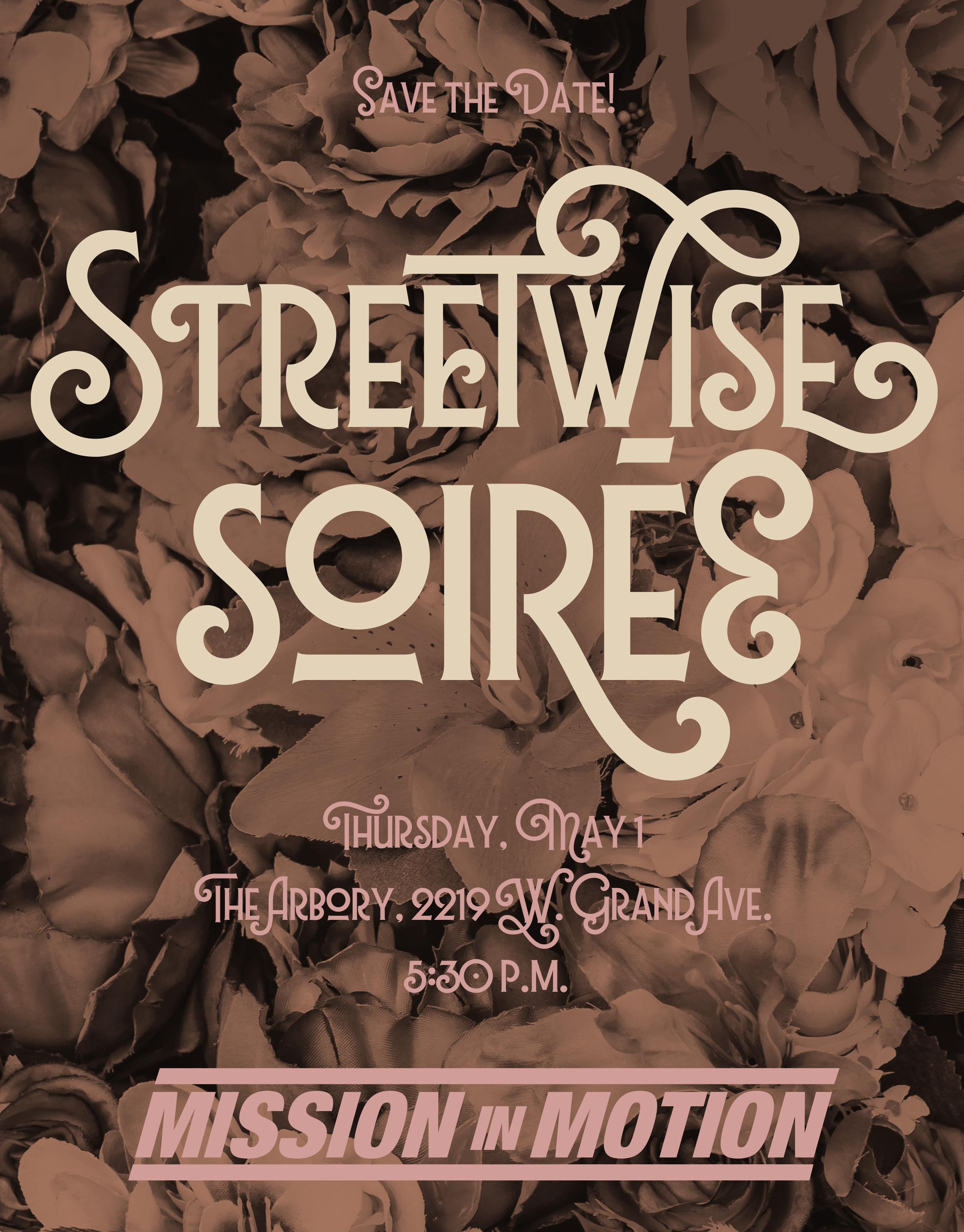
Nicole Robinson


Nicole Robinson

The weekend before the November 2024 election, I had the privilege of spending time with over 100 young Black and Brown girls through YWCA Metropolitan Chicago’s flagship youth program. Designed to spark interest in STEM, our program works when our girls feel confident, strong, and powerful.
The following week, the Presidential election results and the rejection of policies that support them, alongside someone who looks like them, stung.
We must work together to ensure the hopes and dreams of the women, families, and youth served by YWCA Metropolitan Chicago remain grounded in confidence and rooted in opportunity. As iconic feminist and social commentator bell hooks once said, “True resistance and resilience begins with people confronting pain and wanting to do something to change it.”
This special edition of StreetWise is in recognition of Women’s Futures Month, where we rise above the rhetoric to imagine possibilities for women, families and those girls who for a moment – felt the lights around them dim. This issue highlights diverse voices on gender, racial, and economic equity, reflecting on the future we all want and deserve for women and girls, and what it will take to get there, together.
We turned to globally renowned experts like Nobel Prize-winning economist Claudia Goldin, who shared with philanthropist Melinda Gates the difference between "empower" and "empowerment." “To empower a person is to give them control and education,” says Goldin. “Empowerment implies an activity, and the activity has to be a community.”
We tapped local friends and storytellers Sylvia Ewing and Greg Trotter who share our longing to make sense of our future while we cling tightly to what we have. Sylvia implores us to rise from the mire and cynicism of everyday life and recognize those working for women and girls. And Greg, as a father of two girls, penned a heartwarming letter to his daughters expressing his hope for their future and a wonderful expression of the values he instills in them.
You’ll also hear from our StreetWise vendors, who brave the elements to contribute to our economy and community by selling StreetWise across Chicagoland neighborhoods. We see brilliance when the people of StreetWise thrive. We see brilliance when women, girls and families thrive.
We hope these stories spark a thought, unleash a smile and give you comfort during what has become a regularly tense news cycle. We imagine StreetWise as a place for more storytelling by a range of community members who will fuel our ability to fight for our future. These stories remind us of the good in our communities and the need to take care of ourselves so that we have the strength and resilience to serve others, together.


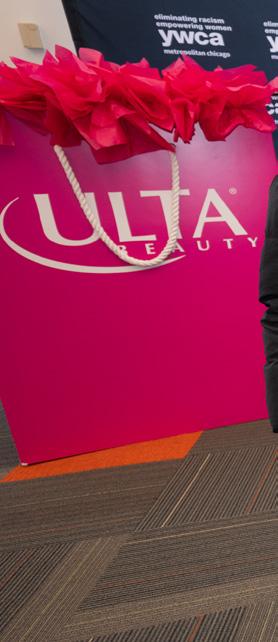

YWCA Metropolitan Chicago


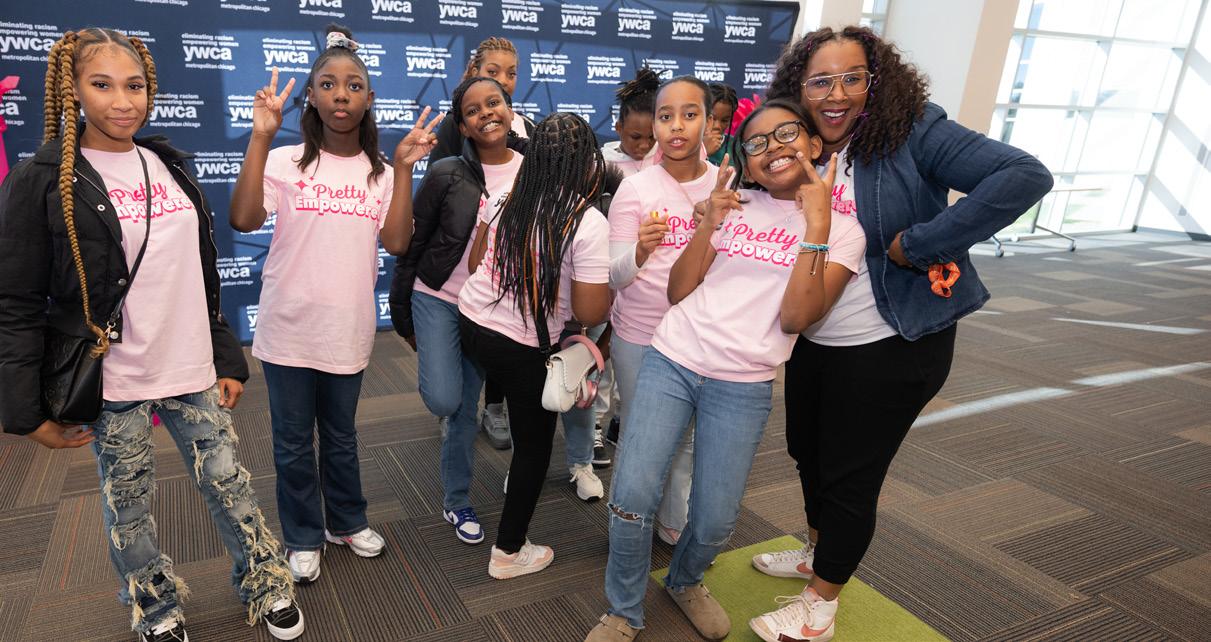




Sylvia Ewing: Wellness and Self Care for Women and Girls
Greg Trotter: An open letter to my daughters
Women's Economic Power with Dr. Claudia Goldin and Melinda French Gates
Female StreetWise vendors on the Racial Wealth Gap
The Chicago Public Library's list of must-read books for Women's History Month
Get to know the YWCA Metropolitan Chicago The Breedlove Entrepreneurship Center graduation
THIS PAGE: YWCA Metropolitan Chicago CEO Nicole Robinson attends the "Pretty Empowered" youth event sponsored by Ulta Beauty (YWCA photos). DISCLAIMER: The views, opinions, positions or strategies expressed by the authors and those providing comments are theirs alone, and do not necessarily reflect the views, opinions, or positions of StreetWise.
Dave Hamilton, Creative Director/Publisher dhamilton@streetwise.org
Suzanne Hanney, Editor-In-Chief suzannestreetwise@yahoo.com
Amanda Jones, Director of programs ajones@streetwise.org
Julie Youngquist, Executive director jyoungquist@streetwise.org
Ph: 773-334-6600 Office: 2009 S. State St., Chicago, IL, 60616 5 4 2 6 8 10 12 14 15 A Letter from YWCA Metropolitan Chicago CEO Nicole Robinson
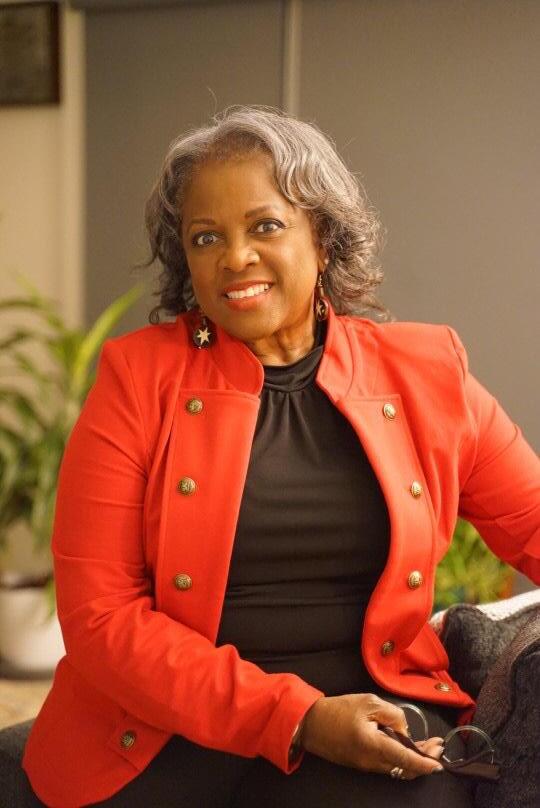
When I consider the future of women and girls, I believe the best outcomes flow from working in coalitions and as neighbors to prioritize their success, tapping into a foundation of inspiration, and, most notably, for women of all ages, aligning our minds, bodies, and spirits.
Government upheaval and corporate ascendancy made the first month of 2025 feel like an entire year. The administration in Washington came blustering back, with planned chaos and performance designed to intimidate and destabilize. Now more than ever, we are collectively responsible for strategic action to use the government for good, such as making childcare, a livable income, a healthy environment, fact-based media, and education available. Coalition work on a grand scale and neighborly kindness are equally important.
Representation and inspiring stories also support a brighter future for women and girls. My friend and Access Living colleague, actress Susan Nussbaum, was a person with paraplegia and a brilliant performer. She created the Empowered Fe Fes, a group of women who demanded equality and access for women and girls like them. Her good work
lives on as her legacy. My friend, Deborah Harrington, is a philanthropic leader who changed how her peers saw criminal justice. She has started, led, or served on numerous boards and institutions for good in places where other Black women were not previously heard.
Tonika Lewis Johnson is a social justice artist who has transformed how people view the South Side of Chicago. Her Folded Map and subsequent multimedia projects are awe-inspiring and rooted in reality. We need role models like these to improve the future of women and girls.
We have to have strength and resilience to serve others. Women, especially Black women, are exhausted. Flight attendants tell passengers to put on their oxygen masks first before helping others in an emergency on an airplane for a good reason. I’m trying to be a little better today than yesterday and be my authentic self, who may not meet that standard. I invite you to reflect on what brings you happiness or harm. I invite you to help make it easier for the women and girls in your life to rest and renew.
I have a few things that have helped me. I meditate. There is a style of meditation for every personality. Start now – take a deep breath through your nose. Hold it as long as you can, and slowly let it go. See how you feel.
When you start your day, before you get up and go under the influence of the glowing rectangle of phones and other devices, take a moment to breathe deeply; watch the space between the inhale and exhale as it expands. Then, send love to yourself, express gratitude to your form of the Divine, and set your intentions for the day. Treat yourself as you would a beloved friend. Don't hide your head in the sand, but give yourself the grace to determine when and how much news and media to consume.
As a Black woman in America, I lean into my Christian faith practice, yoga, and the inspiration of other women past and present to protect my joy and to manifest a bright future for my people and all women and girls. I encourage all women to meditate, pray, laugh, and give their bodies what they need.
Sylvia Ewing is Vice President of Journalism and Media Engagement for the Nonprofit Public Narrative, a long-time civic leader, and a certified meditation teacher.

Dear June and Tess,
This morning, as you slept, I stepped outside for a brace of cold air. The sun wasn’t up yet. A thin crescent moon and a single brilliant star pierced the sky.
We’re in winter now. These short days can feel long.
A few days after the election, I took you girls to volunteer for Nourishing Hope, one of Chicago’s courageous front hunger relief organizations. We delivered boxes of food to elders on the South Side, as you may recall. I needed it, to be honest — to feel like we were doing something, anything, to help others. And more selfishly, I just needed to feel some good vibes. Volunteering is good medicine for despair.
At one of our stops, we carried boxes of food up the steps of a brownstone, as the neighborhood stray cats gathered around us, vying for attention. I asked the woman who answered the door how she was doing.
“I’m blessed and so are you.”
Her words come back to me at times when I feel overwhelmed. Honestly, my sweet girls, I worry about the state of our country and what it means for your future. Women have less access to reproductive healthcare than when you were born. LGBTQ+ rights are increasingly under attack. Our planet continues to warm at an alarming rate because there’s not enough political will to do anything about it.
Bullies win sometimes. Cruelty cannot always be checked. Hurt people hurt people. These seem to be some of the unassailable truths of the day, and I don’t know how to square them with what I believe in my heart — what I teach you and what my parents taught me. This isn’t the world that I want for you.
What can we do? I keep circling back to that question.
We can tend our own garden, so to speak. We can love our neighbors. Be kind to other people, particularly those less fortunate.

And when the time comes, we can use our voice to speak out against injustice. That was the message from Pastor Sandy Gillespie, a friend and hero of mine, who runs the Chosen Bethel food pantry in Englewood.
When we volunteered there on Martin Luther King, Jr. Day, we prayed with our fellow volunteers, shoulder to shoulder, palms raised upward, before opening the doors.
“God gave you a voice,” Pastor Sandy said then. “You must use it.”
I suspect these experiences that your dad insists upon can feel a world away from our mostly white, affluent enclave of Highland Park, where we call home. That’s a good thing. This is another core belief of your father’s: It’s healthy and important to be in community with people who are different from yourself.
Know this, my girls: Your mother and I are so proud of you in these moments of stepping outside of your comfort zone and helping others. We see the earnest joy and love of your actions.
Honestly, I don’t know what the future holds or whether we’ll see any political momentum swing back to equal rights, social justice and environmental stewardship. Hard to envision it now. But I believe in our power to plant seeds of goodness in this world.
Take heart, my dears. No giving up, not ever.
We’re in winter now, but it will not always be so.
I am blessed and so are you. So are we all.
Love,
Dad
Greg Trotter is a writer and proud father of June, 14, and Tess, 11.
Claudia Goldin has been blazing trails throughout her career: In 1990 she became the first woman to receive tenure in Harvard University’s economics department, and in 2023 she was the first woman to be awarded a solo Nobel prize in economics.
Her award-winning research focuses on women and labor. She considers herself a detective, sifting through historical data to uncover why some gender gaps in pay and workforce participation have closed while others have persisted.
The Gates Foundation co-chair Melinda French Gates recently sat down for a conversation with Professor Goldin. She asked what the professor’s research has revealed about women’s economic power today.
Content has been lightly edited and condensed for clarity.
Melinda: To me, women having economic power means that they have full control over decisions about their health, their lives, and how to live their lives. How do you think about it from where you sit?
Professor Goldin: Let’s think about the word empowerment. I think about it as two parts. There is to empower a person, to give them control, to give them education, to free capital markets, to make laws that protect them in various ways.... But then there’s the ment part, the empowerment. It implies an activity, and the activity has to be a community.
Let me give you an example. In U.S. history, the 1960s and ’70s were moments when we empowered women. We empowered them legally, but the real empowerment came when women got together. We got together in consciousness-raising groups. We formed other types of groups. That really was empowerment because it was the activity. And the same thing is true in India today on buses, for example: Saying that the buses aren’t safe for women riders isn’t enough. You have to have numbers. You have to have the community.
Melinda: We women and girls spend 12.5 billion hours doing unpaid labor. Now, some of that’s labor we want to do. It’s loving care for others—the young or the elderly. But a lot of it is burdensome or chores. If we could unlock that unpaid labor, what difference would it make for women?
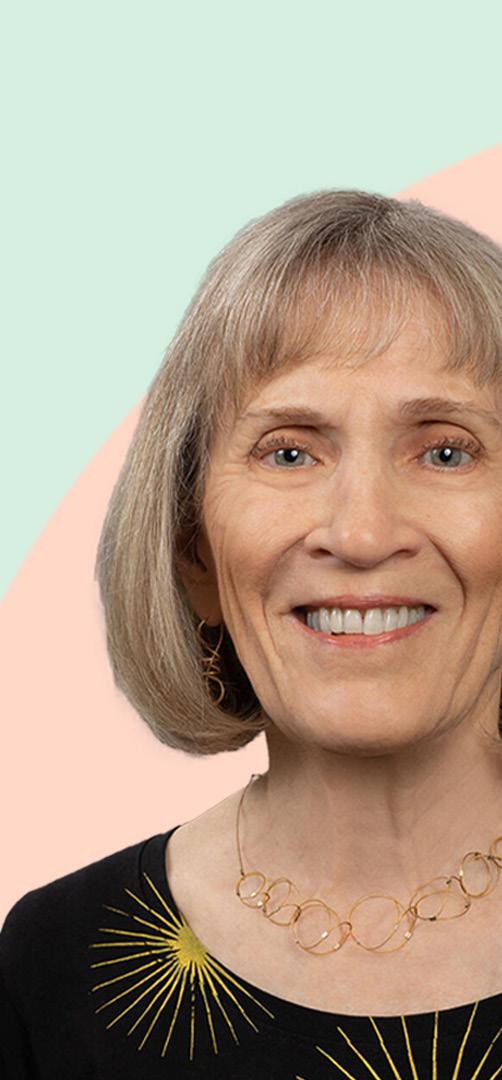
Professor Goldin: When we talk about unlocking women’s unpaid labor, we often mean monetizing it. We often mean putting it into the labor market, and that is not the right thing. All that would do is transfer an unskilled person’s labor into an unskilled labor market. In fact, we could do harm. The parent who is getting help from the daughter is now being helped by someone who may not like their job terribly much.
I think, particularly in a place like the U.S., that what we should be doing is upskilling these jobs. We should be thinking about the notion that an individual who’s caring for an elderly person, a sick person, a disabled child in their home, should have the ability, the financial backing, to do more. As a result, the individual being cared for doesn’t have to go to the hospital to receive an intravenous drug, for example, but that can be done in the home by their caregiver.
Upskilling individuals who are in care positions is something that we should do. And then we would do better transferring it from the unpaid to the paid, because the paid is now going to be better.

Melinda: Are there enough female economists in the world today? And what advice do you give to young female economists coming up behind you?
Professor Goldin: Of course the answer is no— there aren’t enough women economists today. But we have a lot more women economists than we used to. And I think we have figured out how to increase their numbers. I say the same thing to every one of them: Figure out what your passions are and find them, because the project you work on, you go to sleep with, and you wake up with— you better love it.
Story and photo provided by the Gates Foundation. Used by permission. gatesfoundation.org
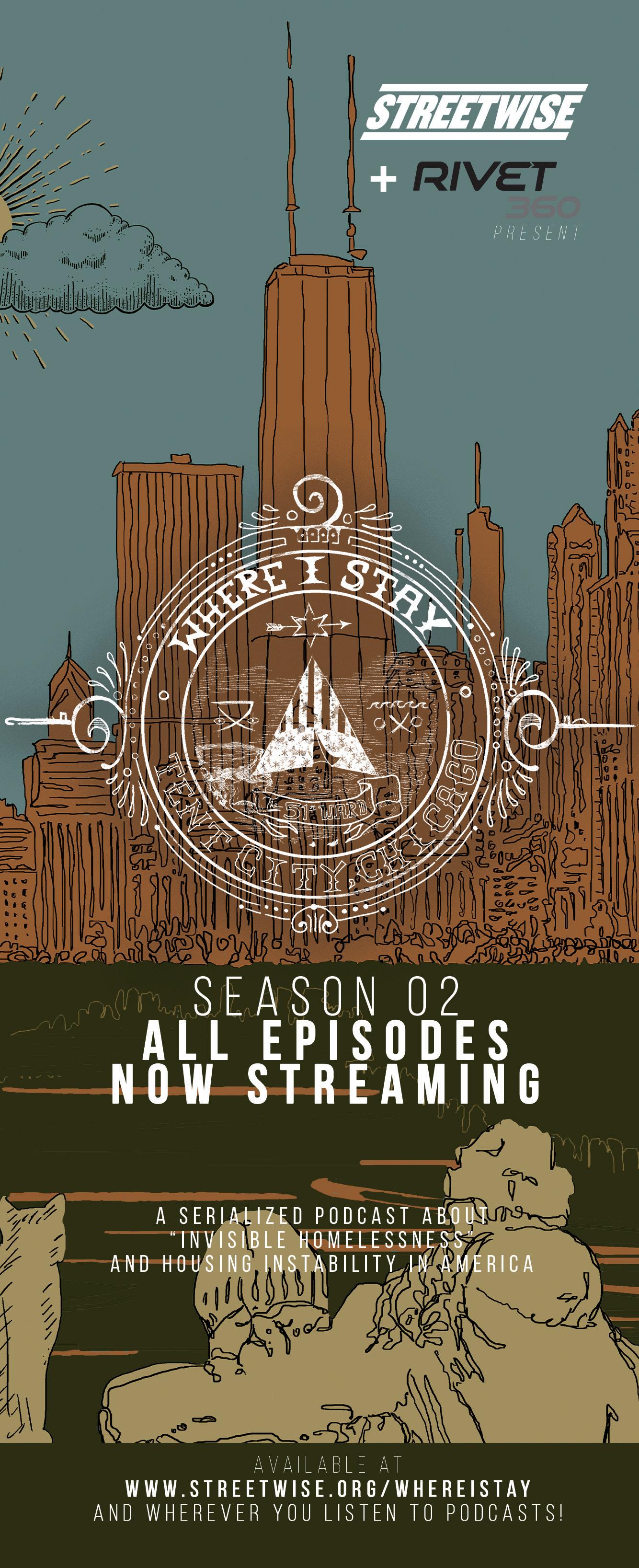
Compiled by Suzanne Hanney
Wealth increased unevenly across U.S. households of all ethnicities from 2019 to 2021, according to the Pew Research Center. Asian households had a median net worth of $320,900, compared with $250,400 for White households, $48,700 for Hispanics and $27,100 for Blacks.
Pew attributed the Black wealth gap to slavery and segregation, which have limited the accumulation of wealth – and as a result, inheritances -- for a snowballing effect. Immigration and relative youth have inhibited Latino wealth. Conversely, Asians have more wealth partly because of more education. StreetWise vendors offered possible solutions:
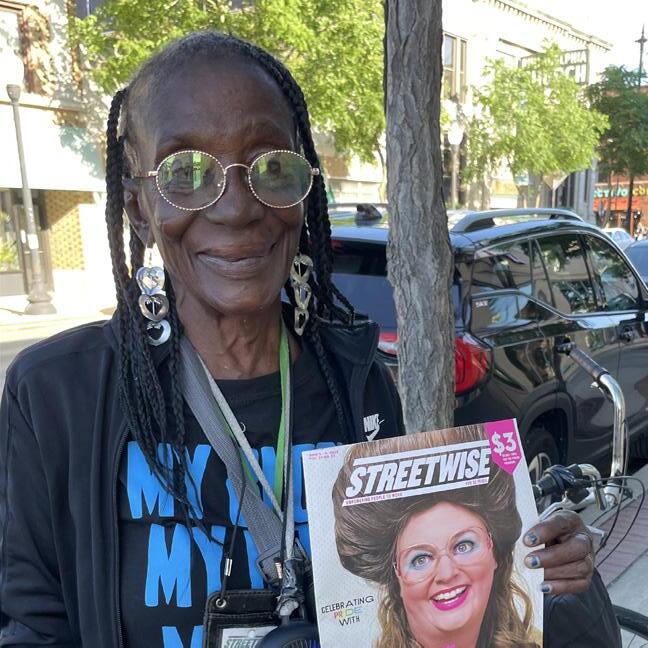
I can’t leave much. I don’t have land, or a house, or gold. I am leaving my kids no bills to pay. I have money for me to be buried when the Lord calls me home. I had an insurance policy for 20 years and am thinking about getting another to leave my four surviving kids something.
Coming in as working men, working women, Blacks, it should be right there at the desk for us: “You have this savings put up for your future, your kids’ future, their kids’ future.” We’re not going to force you to save, but it’s an option on the table. Maybe you see others doing it, let me get on board with $50 a week, and you can’t touch it until the end of the year.
They [whites] should try to donate some of that money to [Black] charities like the United Negro College Fund. Black people should get more and better insurance, try to invest more money. They need to cut back on their expenses. They don’t need all these cars and clothes.
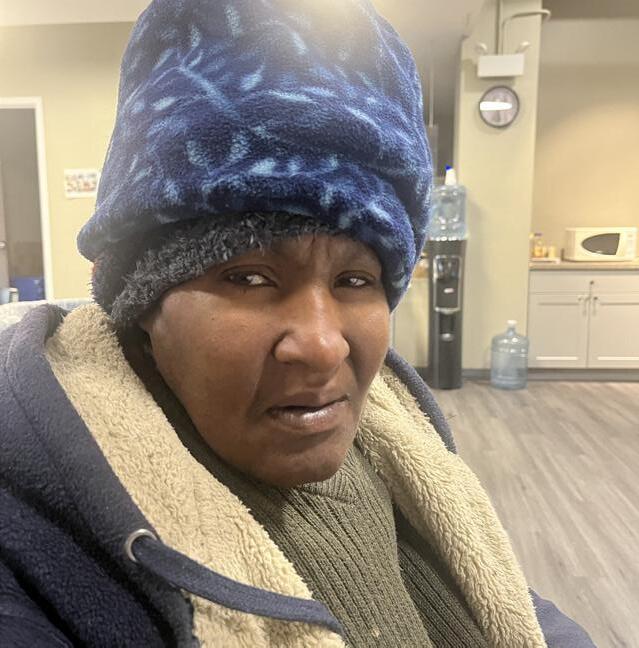

If we start putting this into our everyday lives, we uplift each other. It’s less talked about in our community than in other communities. Yes, they started from home, from grandma to mama, they started their lives like that. Blacks didn’t. Everywhere we go, from work to home, just even having tea, there should be more conversation around the saving budget. There should be more reach-out programs. “We’re gonna show you how to budget that check so you can still spend something and save something.”
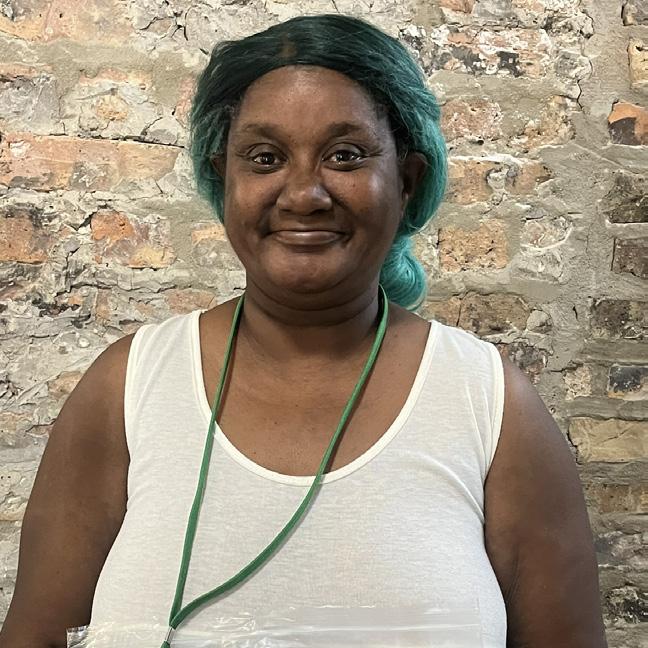
But also, if you are just making enough to put food on the table, how are you going to save? There should be more opportunities than just that one and you’re done.
Latinos get more money than we do –checks. Somebody’s working and I can’t explain why. They got brand-new cars and everything. I don’t know about whites.

People once they are teenagers, need to start special savings, some percentage [put] up. Maybe a money market to increase it, a sure thing, not stocks. Once they get a summer job or after school, if they babysit, put up $20 or $100 and not touch it in something secure. My great-grandmother had her property and my grandmother inherited it and was able to sell it. Not everybody is that lucky, maybe they were in foster care.
I played at the casino [in Indiana], but the rewards don’t come back until the second level. It’s a loyalty program, you have to study their brochure, understand their rewards program. You get offers in the mail, free meals. I picked up [their] bus in Chinatown. I had 999 points and got to $2,500 they let me win. They doubled it and a half, plus gave me the money I played, free meals and hotels. My machine was making all that noise, celebrating me, a whole disco ball with flashing lights! But I knew I couldn’t afford to get to the third card level, so I took what I won and left.
A friend of mine put her money together, played with another person. If they don’t have gambling issues, it won’t be a problem to stop at that second card.
I couldn’t afford Bally’s, but I went to see how the first Chicago casino looked, got a $25 free slot play card and a T-shirt. I left with $18 cash.
Also, I participated in an orientation for a homemakers’ program. They said they had $1 million available. If you put $200 in, you would get $400 back in two years. If they didn’t touch it, it doubled. But if they [participants] wanted their $200 back, they got it, no questions asked.

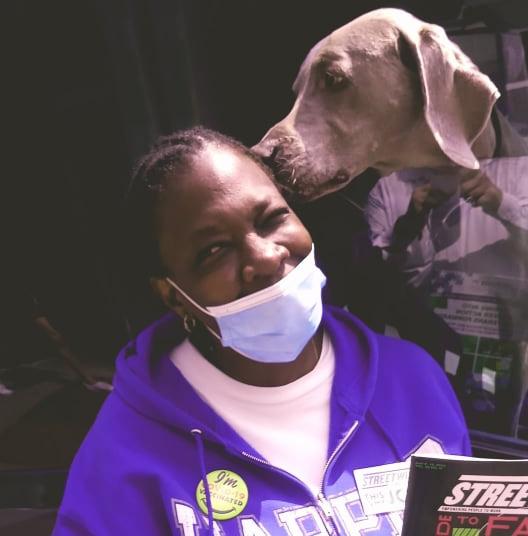
No. 1, kindness doesn’t cost anything. When we look at each other and know we have so much more in common, ....the phone has become the new brain for people. Technology puts out a lot of wrong information. I ask people many times if they have done their own research.
So many things have happened since January 20. But if we just look at DEI, way back in the 1960s when a lot of bills were passed, it wasn’t just for people of color, it was for people who felt they weren’t being seen. A lot of white people were the first to benefit. The wealth gap is about keeping people in their place. The economy would be so much better if everyone could thrive. When I was coming up, we lived in a “community.” Neighbors knew that what affected one, affected all. When the neighborhood thrived, people thrived. If people got sick, people showed up with food or whatever, just to let you know they were there.
My mother never raised me to hate nobody. Why do we have to put color on it? If you needed a kidney and mine was the only one, wouldn’t you take it? It’s gonna save your life.
It’s true that white people have more money.
We get more money circulating in the Black community through safer and steady work – not through violence, selling drugs, or robbing people.
Tell people about other opportunities – they need to hear about work through people they trust.
Celebrate Women's History Month with these books by and about women who educated and inspired, as selected by Chicago Public Library's Women's History Month Committee.
Compiled by the Chicago Public Library & Dave Hamilton

"Black
by
Jenn M. Jackson
In their first book, Jackson applies their critical analysis to the questions that have long energized their work: Why has Black women's freedom fighting been so overlooked throughout history, and what has our society lost in the meantime? A love letter to those who have been minimized and forgotten, this collection repositions Black women's intellectual and political work at the center of today's liberation movements.


"The Bluestockings: A History of the First Women’s Movement" by
Susannah Gibson
A history of the 18th-century Bluestockings movement, a group of women who created intellectual lives for themselves and advocated for a broader role for all women. The Bluestockings pushed for women to be educated and were part of the long fight to unravel the patriarchy.
"In Deep: How I survived Gangs, Heroin, and Prison to Become a Chicago Violence Interrupter" by Angalia Bianca
Bianca spent 12 years in prison for forgery, embezzlement, drug dealing, and theft. But now she has gone far beyond the expectations for recovery to a life of service fueled by an unrelenting determination to make a difference. Bianca crawled out of the deepest hole imaginable; now through her work with the renowned violence prevention group Cure Violence, she climbs back down to change lives. “In Deep” is a blunt, honest look at Bianca's life, her story is at once fascinating, terrifying, and ultimately full of hope.

"The Light We Carry: Overcoming in Uncertain Times" by Michelle Obama
Mrs. Obama offers readers a series of fresh stories and insightful reflections on change, challenge, and power, including her belief that when we light up for others, we can illuminate the richness and potential of the world around us, discovering deeper truths and new pathways for progress. With trademark humor, candor, and compassion, she also explores issues connected to race, gender, and visibility, encouraging readers to work through fear, find strength in community, and live with boldness.

"Loud: Accept Nothing Less Than the Life You Deserve" by
Drew Afualo
The empowering, inspiring, patriarchysmashing first book by TikTok and Spotify star Drew Afualo.

Stacey Abrams
In “Minority Leader,” Stacey combines aspects of memoir with real-world advice for women and people of color, offering hard-won insights for navigating worlds that, until now, were largely the territory of white men alone. Stacey encourages her readers both to leverage otherness to their advantage and to recognize their own underlying feelings of unworthiness and legitimate fears.
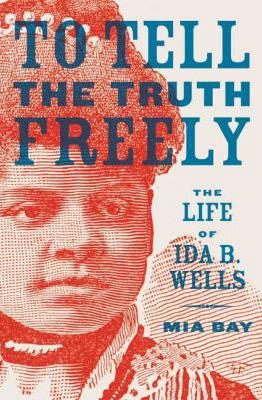
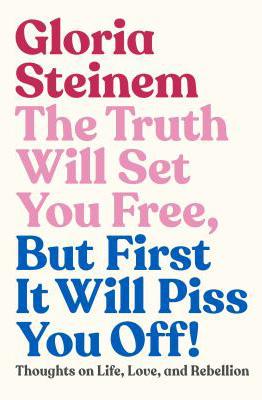
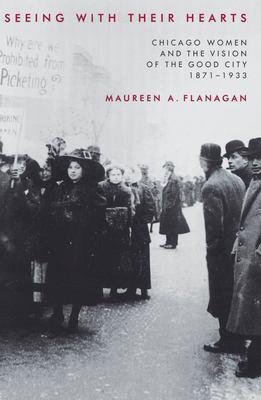
"Seeing With Their Hearts: Chicago Women and the Vision of the Good City, 1871-1933" by
Maureen A. Flanagan
At the turn of the last century, as industrialists and workers made Chicago the hardworking City of Big Shoulders, Chicago women articulated an alternative City of Homes in which the welfare of residents would be the municipal government's principal purpose. “Seeing With Their Hearts” traces the formation of this vision from the relief efforts following the Chicago Fire of 1871 through the many political battles of the Gilded Age and Progressive Era. In the process, it presses a new understanding of the roles of women in public life and writes a new history of urban America.
"To Tell the Truth Freely: The Life of Ida B. Wells" by Mia Bay
Born to slaves in 1862, Ida B. Wells became a fearless anti-lynching crusader, women's rights advocate, and journalist. Wells's refusal to accept any compromise on racial inequality caused her to be labeled a "dangerous radical" in her day but made her a model for later civil rights activists as well as a powerful witness to the troubled racial politics of her era.
"The Truth Will Set You Free, but First It Will Piss You Off: Thoughts on Life, Love, and
Rebellion" by Gloria
Steinem
For decades people around the world have found guidance, humor, and unity in Gloria Steinem's gift for creating quotes that inspire action and create hope. Covering topics from relationships ("Many are looking for the right person. Too few are looking to be the right person.") to patriarchy ("Men are liked better when they win. Women are liked better when they lose. This is how patriarchy is enforced every day.") and activism ("Change, like a tree, grows from the bottom up."). This is a definitive collection of her words on many of the topics that matter most today.
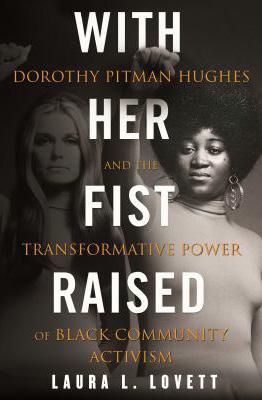
"With Her Fist Raised: Dorothy Pitman Hughes and the Transformative Power of Black Community Activism" by Laura L. Lovett
The first biography of Dorothy Pitman Hughes, co-founder of Ms. Magazine and trailblazing Black feminist activist whose work made children, race, and welfare rights central to the women's movement.


Founded in 1876, YWCA Metropolitan Chicago is a social enterprise committed to eliminating racism, empowering women, and promoting peace, justice, freedom, and dignity for all.
As a leading association among a national network of more than 200 YWCAs, YWCA Metropolitan Chicago impacts tens of thousands of women and families annually through comprehensive human services provided across the region. YWCA Metropolitan Chicago is a leading service provider in the areas of sexual violence support services, early childhood and child care provider services, family support services, youth STEM programming, and economic empowerment services.
We share a vision for an inclusive marketplace where everyone thrives.
YWCA Metropolitan Chicago is the oldest womenfocused social service organization in Chicago. It was formed by 13 women who met on December 12, 1876, to address their concerns for the growing number of single women who were coming to Chicago for work during the boom years after the great Chicago fire.
In 1972, the YWCA Leader Luncheon pioneered the concept of public recognition for working women’s achievements. The YWCA Leader Luncheon remains a Chicago tradition, drawing more than 1,300 representatives from the corporate, private and social service sectors to celebrate the accomplishments of outstanding women and raising more than half a million dollars for YWCA programs and services.
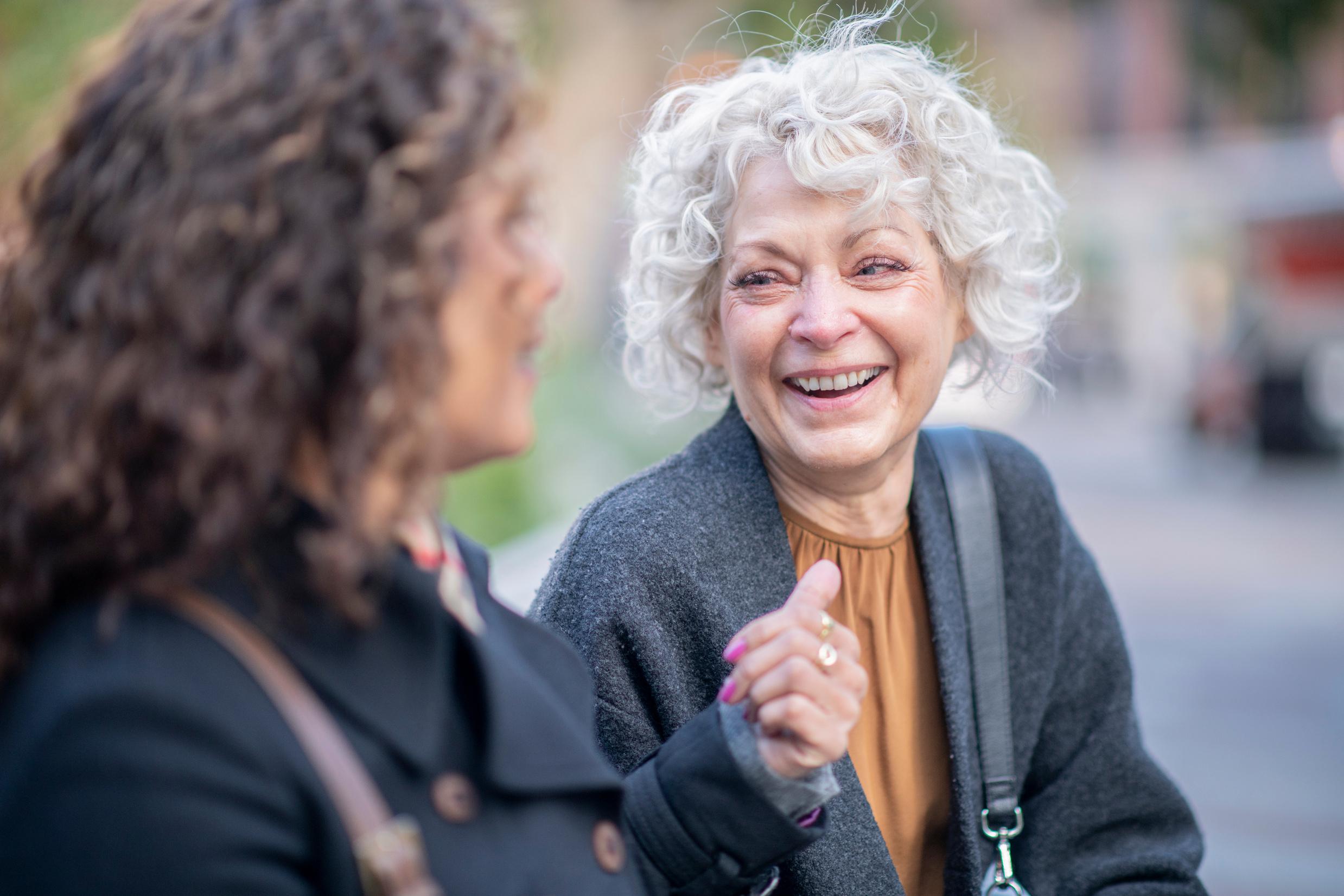
Today, YWCA Metropolitan Chicago is a social enterprise and a leading service provider in the areas of sexual violence support services, early childhood and child care provider services, family support services, youth STEM programming, and economic empowerment services. A commitment to racial justice, equity, and inclusion runs through all YWCA activities. Contributing to a diverse and balanced economy, YWCA Metropolitan Chicago is working at the individual and systems levels to create an inclusive marketplace where everyone thrives.
YWCA Metropolitan Chicago is dedicated to eliminating racism, empowering women and promoting peace, justice, freedom, and dignity for all.
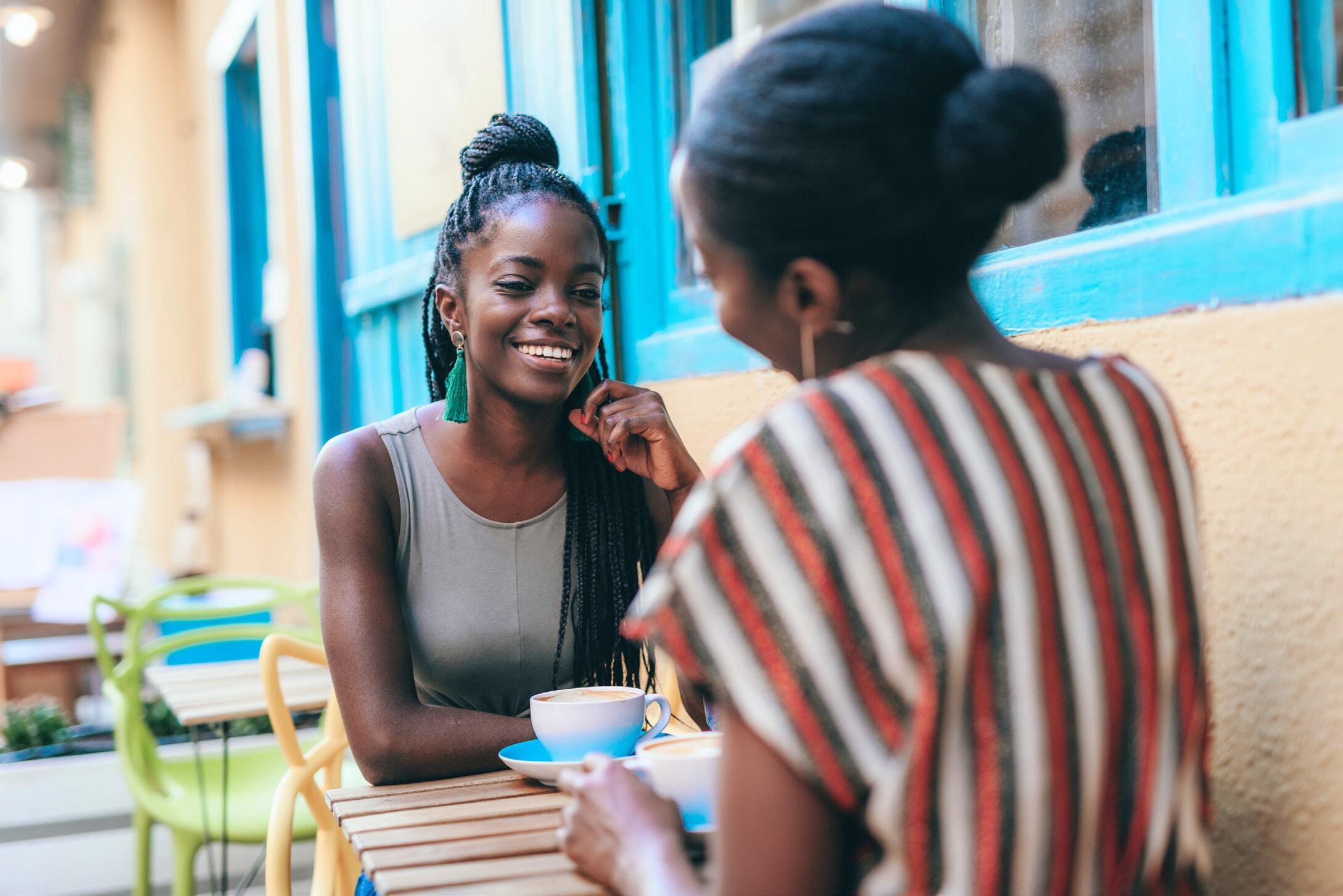


We provide comprehensive counseling services to individuals impacted by all forms of violence, including gender-based and community-based violence, and also promote community wellness and equal access to healthcare resources.
We connect families to childcare resources and build the capacity of childcare providers, while empowering the next generation of youth through engaging afterschool programs
We offer people, particularly women of color, with job skills training, financial sustainability, and asset acquisition to help close the racial wealth gap.
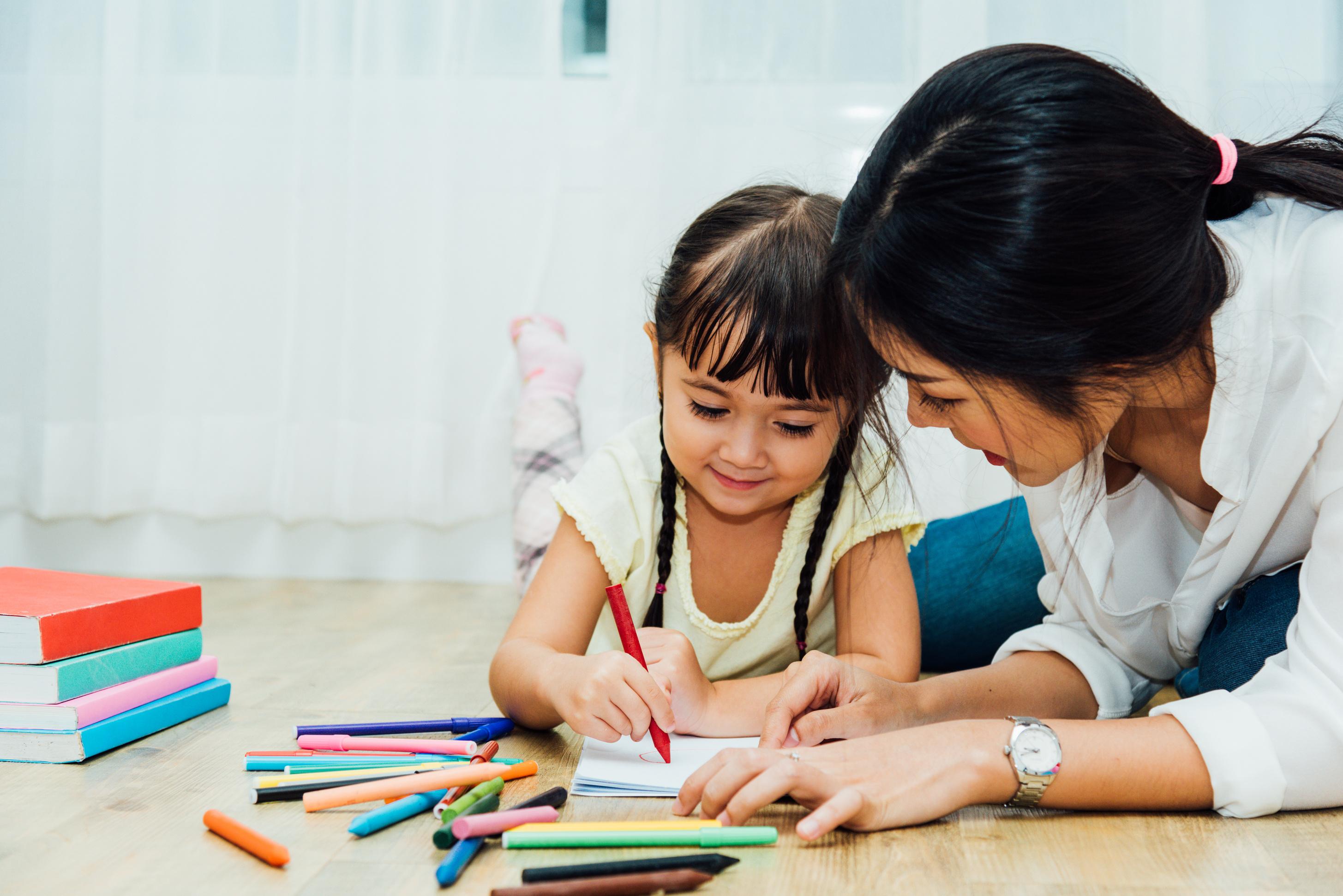


by Suzanne Hanney
Lightweight, synthetic hair braids and quality wine without pretension were needs that Jannice Newson and Chrishon Lampley saw – and developed into their own businesses.
Curiosity, problem solving, and a willingness to listen to the people who used their products were factors behind their success, said Karrie Sullivan, founder/CEO of Culminate Strategy Group and moderator of a panel featuring Newson and Lampley at the latest graduation of the YWCA Breedlove Entrepreneurship Center.
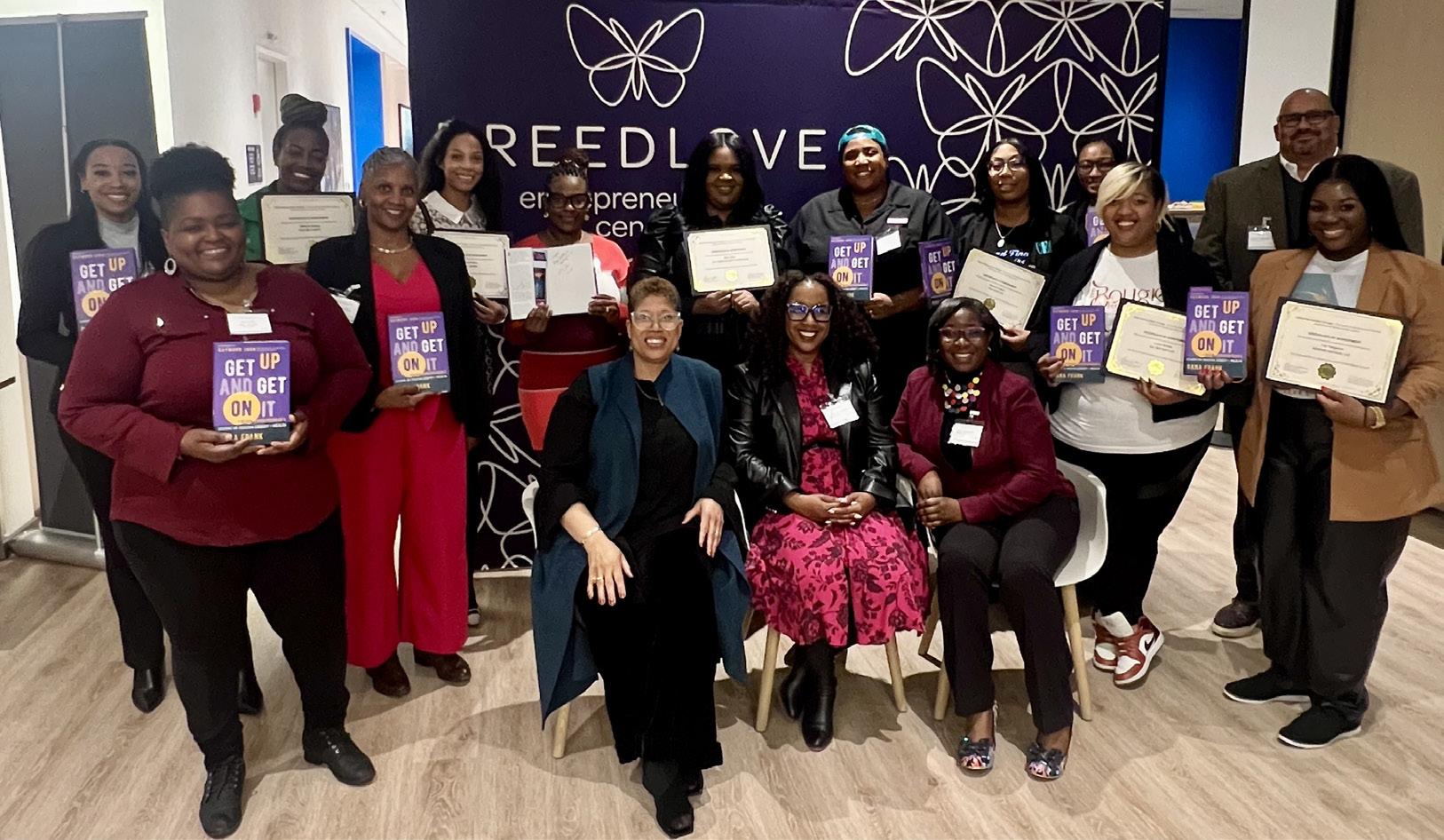
recipes for
blue cheese hamburger with Cabernet Sauvignon.
Newson, founder/CEO of Lillian Augusta Beauty, a plant-based and vegan hair product, used to walk around patting her head because synthetic braids (which contain plastics and unknown toxins) made her itchy and allergic. Various academic and government studies also say that the weight of braids pulling on the scalp can cause baldness. As a graduate student in environmental science at the University of Michigan in 2020, Newson began making fiberbased hair in her basement, emailing and meeting on Zoom with people who made plant-based clothing and wipes. Once she achieved a version she liked, she tested it with friends. Her “hair without harm” launched this year.
As founder/CEO of Love Cork Screw, Lampley buys grapes and rents out tanks in vineyards for her label, which has sold four million bottles around the U.S. Lampley had always enjoyed wine and had been a self-described “foodie” since childhood. She decided to become an entrepreneur when she realized she was making more money for other people than she would ever see. Earlier, she had run an art gallery and lounge at 16th and Michigan. Fresh out of college, she had sold Christian Dior and then Escada fashions on Michigan Avenue alongside veteran salespeople who had huge customer followings.
It was a cutthroat, commission-only environment as in the movie, “Pretty Woman.” But the difference, Lampley said, is that she could sell to anyone because she never judged anyone, and she treated everyone with respect.
Similarly, Lampley noticed that many people felt uncomfortable with wine: too many rules about how to drink it and overwhelming names. She believed she could make it more accessible. “Enjoy it, drink it, don’t overthink it,” says her website, which includes
Breedlove graduates have maximized their own diverse opportunities, from a family funeral home to a wedding/events venue; a taco restaurant/caterer/ event space/nonprofit; a medical spa; services in finance, insurance, graphic design/photography/social media, real estate and printing; an apparel boutique, a purveyor of legwear and a creator of handmade, nongreasy skin products based on her grandmother’s historic needs.
The YWCA Breedlove Accelerator was born in 2021 to empower Black business, transform community and close the racial wealth gap: Black households are 16% of the U.S. population but they hold just 4% of the wealth, according to the Brookings Institution. As an example of this gap, just 2% of all venture capital goes to women-owned businesses and even less – 0.00006% – to businesses owned by Black women.
The YWCA Entrepreneurship Center, however, took its name and inspiration from Sarah Breedlove, one of the first African American millionaires in the U.S. Born in 1867 to sharecroppers who were former slaves, she transformed herself into Madam C.J. Walker, whose hair care empire trained more than 20,000 sales agents, setting these African American women on a path to independence.
The Breedlove team consulted Mightyhum, the DePaul Women Entrepreneurship Institute and Lunum to develop curriculum for later stage, undercapitalized Black women entrepreneurs with revenues over $100,000. The idea is that with adequate funding and support, they can catalyze the communities they serve.






